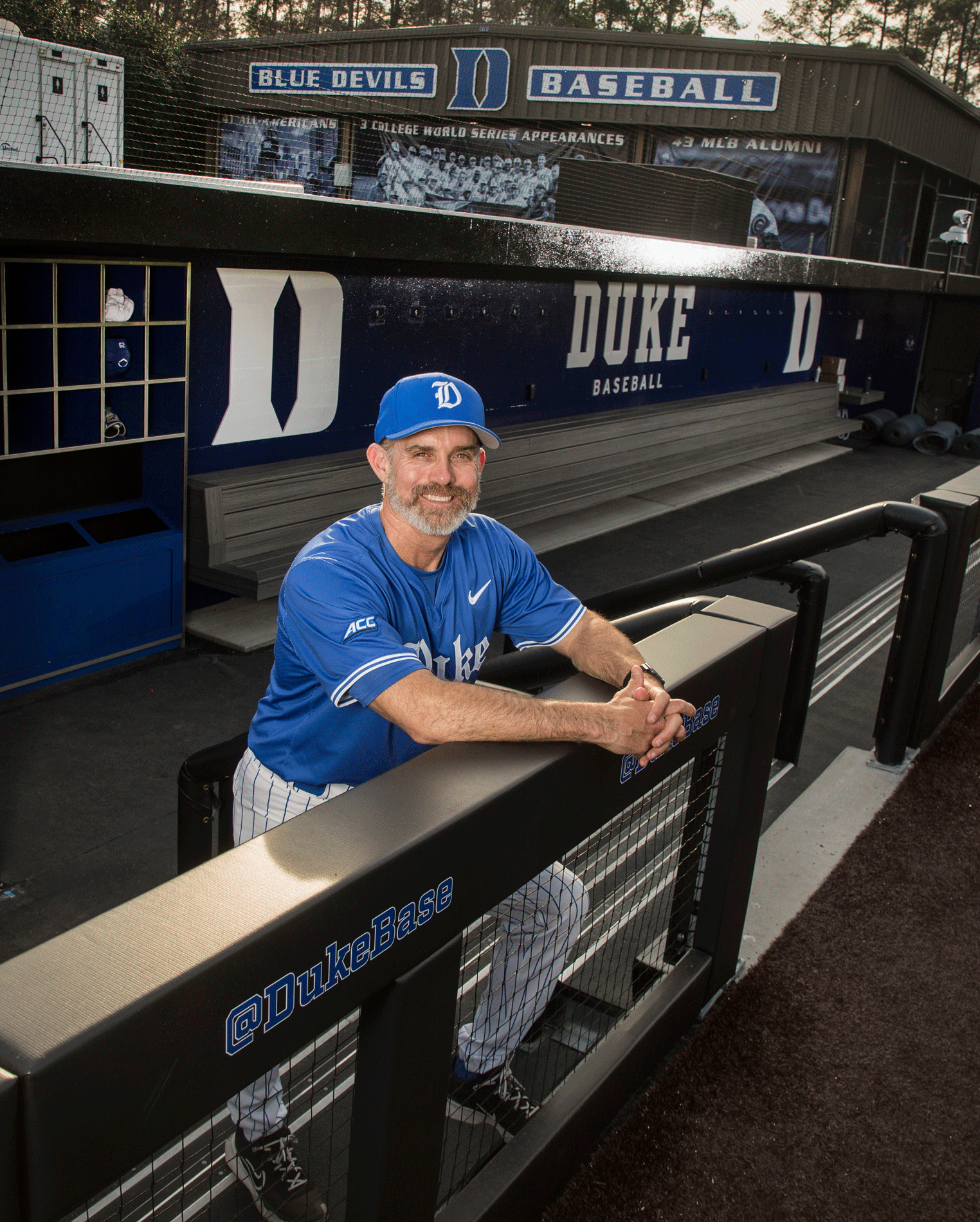On June 10, it was announced that coach Chris Pollard was leaving Duke to become head baseball coach at the University of Virginia.
Consider the humble lunch pail: At its simplest, it carries the fuel needed to sustain a worker. At its most elevated, it’s a reliable metaphor for hard work itself, and it fuels an entire baseball team.
It’s probably no surprise that Duke baseball players and their record-setting coach are into metaphors. Blue Devils head coach Chris Pollard has made a lunch pail owned by his grandfather the symbol of his team’s blue-collar work ethic. The metal box goes to the player who represents that ethos the best each week or so, and it’s handed out in an informal ceremony known as “passing the pail.”
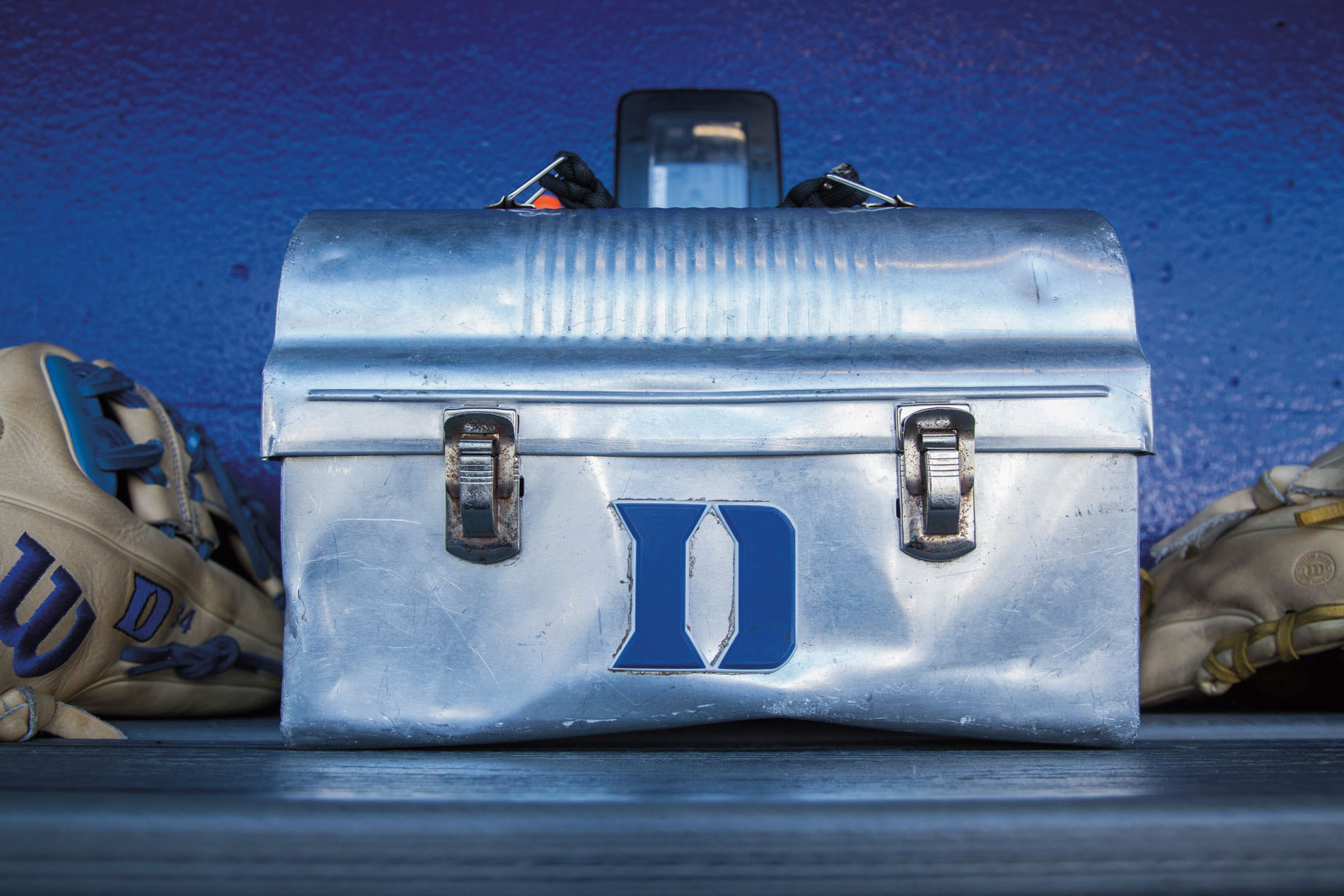
“It’s a nod to my dad and my granddad,” Pollard says. “My grandfather was a farmer, had a little farm that we grew up on. My dad worked for 33 years for the post office. For the entirety of my growing up, my dad worked six days a week. He left the house every morning at 5:30 and he came home every night at 6:30. Work ethic was a way of life, and his dad was the same way.”
The tradition, and the rock-solid philosophy behind it, is a major part of the identity of a Duke program that has consistently gotten better in each of the 13 seasons Pollard has been at the helm. Working hard and smart has paid off with six NCAA Tournament appearances, two ACC championships (including 2024), five pitchers selected in the 2024 Major League Baseball draft, and Pollard surpassing the school record of 381 coaching wins early in the 2025 season.
“Chris is a great ‘front door’ person for Duke,” says Dick Cooke, Pollard’s coach at Davidson College, where his former student ranks third all-time in pitching wins. “He’s got all those factors that if you’re the athletic director or the president or a high-level administrator or anyone at the institution, you say, ‘We’re really glad that this person is representing the Duke baseball program. He presents the image that we want to project for our program and our institution.’”
Origins
Pollard grew up in Amherst County, Virginia, just outside of Lynchburg, soaking up those lessons in hard work. At Davidson, Cooke quickly realized Pollard was far and away his best and toughest pitcher. Cooke would regularly use him to close the first game of a weekend series and then start the second game.
“Some people just have that ability to win,” Cooke says. “It’s impossible to define what that means. ‘This coach, boy, when this coach coaches teams, they win, or when this guy plays, he wins.’ Chris has got that.”
After graduation, Pollard was playing minor league ball and helping Cooke in the offseason. One day, the phone rang in the Davidson baseball office with an offer for Pollard to coach in the Coastal Plain League, a summer league for college players. Pollard said no thanks. Cooke overheard the conversation and gave Pollard the tough-love advice that changed his life.
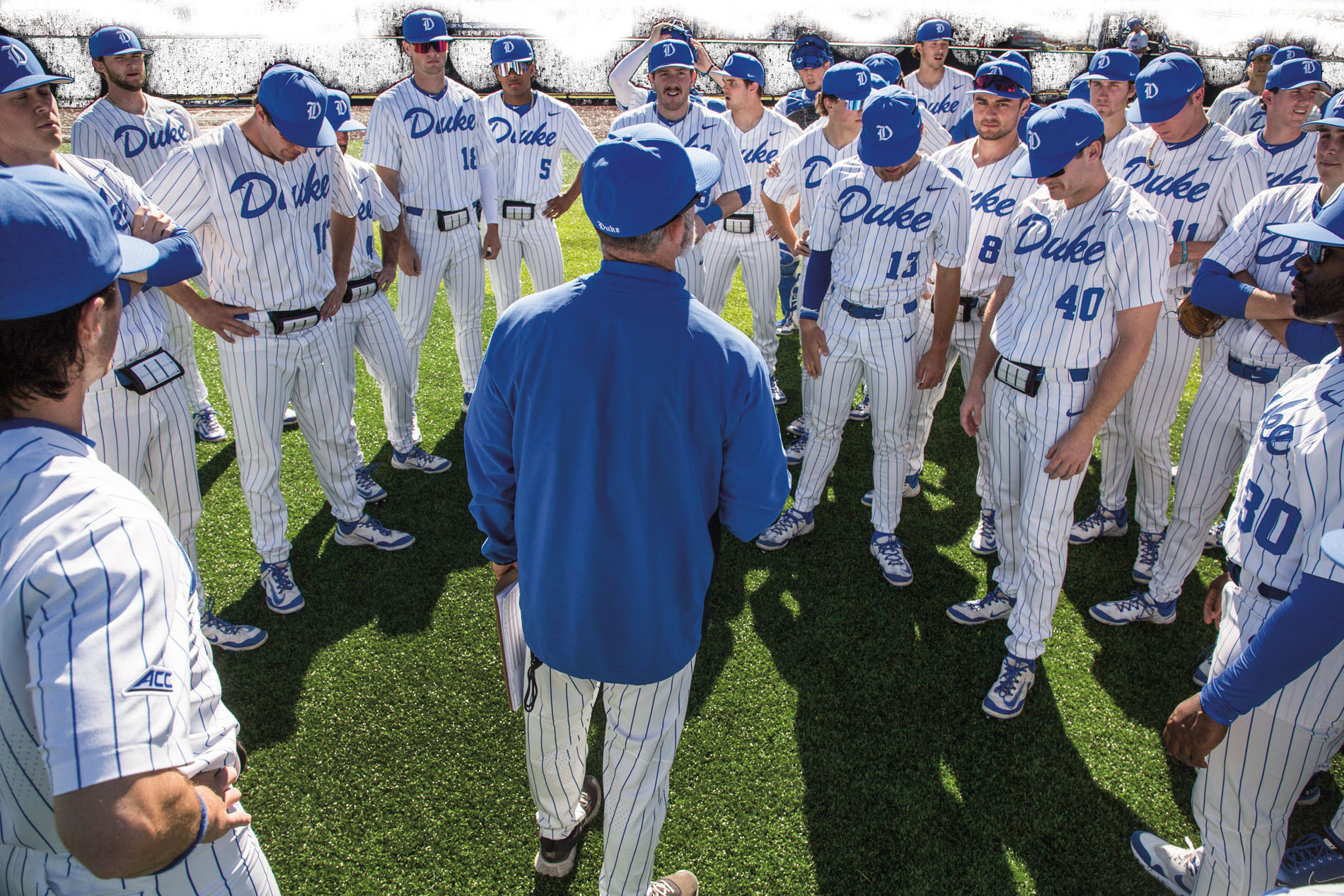
“He said, ‘What are you doing? You should take that job,’” Pollard recalls. “I’m kind of indignant and I said, ‘What do you mean? I’m still playing.’ He said, ‘You need to look in a mirror. Your phone’s not ringing [from pro teams calling]. Maybe you should think about taking that job.’ That was the start.”
Barely a year later, Pfeiffer University in Misenheimer, North Carolina, hired a 24-year-old Pollard as its head coach. He says that before games, he would stock the concession stand and clean the bathrooms right before pregame batting practice. When the game ended, he would start washing uniforms, write a press release about the game, and fax it to local media while the uniforms were washing.
“You got to do it all, so you learned a little bit about all of it, which I think has helped me down the road,” Pollard says. “You can make some mistakes, and they’re not as glaring as when you make mistakes now. It was a great place to develop.”
In his fifth season at Pfeiffer, Pollard won a conference championship and got a call from Appalachian State, a program that was then considered a tough place to coach. Within three seasons, the Mountaineers were winning consistently. In 2012, they took their conference title and qualified for the NCAA Tournament.
“He’s a really good coach, he’s a better person, and he really cares about his players,” says Jeff Childress, the athletic director who hired Pollard at Pfeiffer. “To get all three of those, it’s a win-win. That’s why he turned things around at Pfeiffer. That’s why he turned things around at App State, and that’s a big part of the reason for what he’s done at Duke. He really puts in that effort, and he’s a hard person not to pull for.”
At home in Durham
The Blue Devils hired Pollard in 2013, and he got to work as usual. Within two years, he had Duke on the good side of .500, where it has stayed for more than a decade. The Devils have made six NCAA regionals or super regionals in their last eight full seasons and have come tantalizingly close to a berth in the College World Series several times.
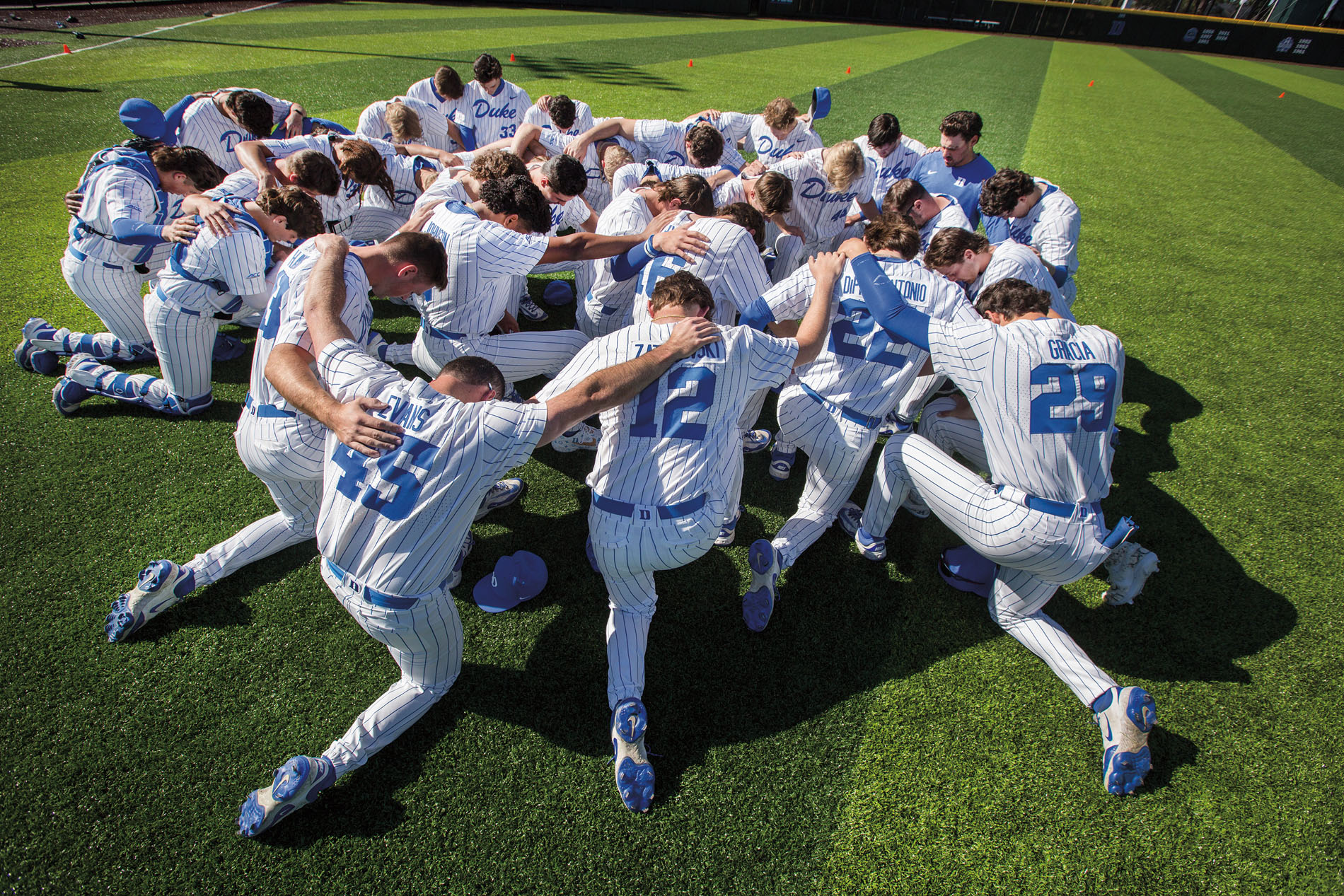
Fastidious preparation is a critical element of Pollard’s success. Practices are carefully structured, and no time or effort is wasted. He is well known for his four pillars – process, servant leadership, growth mindset, gratitude – and he takes lessons from the military and business. It’s common for him to refer to the “fog of war” when conditions are unsettled, or to encourage players to “impose their will” in a situation. And he seems to see everything.
“Attention to detail is a big thing for him,” says Dusty Blake, who played for Pollard at Appalachian State, coached with him at Duke, and is now the pitching coach of the St. Louis Cardinals. “You can’t outwork him. You can try to work as much as him to prepare and be on top of things for those guys, and that’s the foundation of it. He wants to make sure these guys are getting the best guidance, direction and coaching that they can. There is a lot of preparation that goes into that.”
Another aspect of Pollard’s great fit at Duke is that he deeply understands the type of players who are interested in his program. He and his coaching staff have a philosophy that we’ll refer to as the Two-Call Rule: They usually know after two phone calls with a recruit if he’s a good prospect for the Blue Devils.
“You can hear it in the conversation and when we talk about guys in our staff meetings, you know, we’ll say, ‘Hey, sounds like a Duke guy,’” Pollard says. “You’re looking for that kid that wants to be challenged academically, that’s looking for the degree, and when you find that kid, then this is an attractive fit for them.
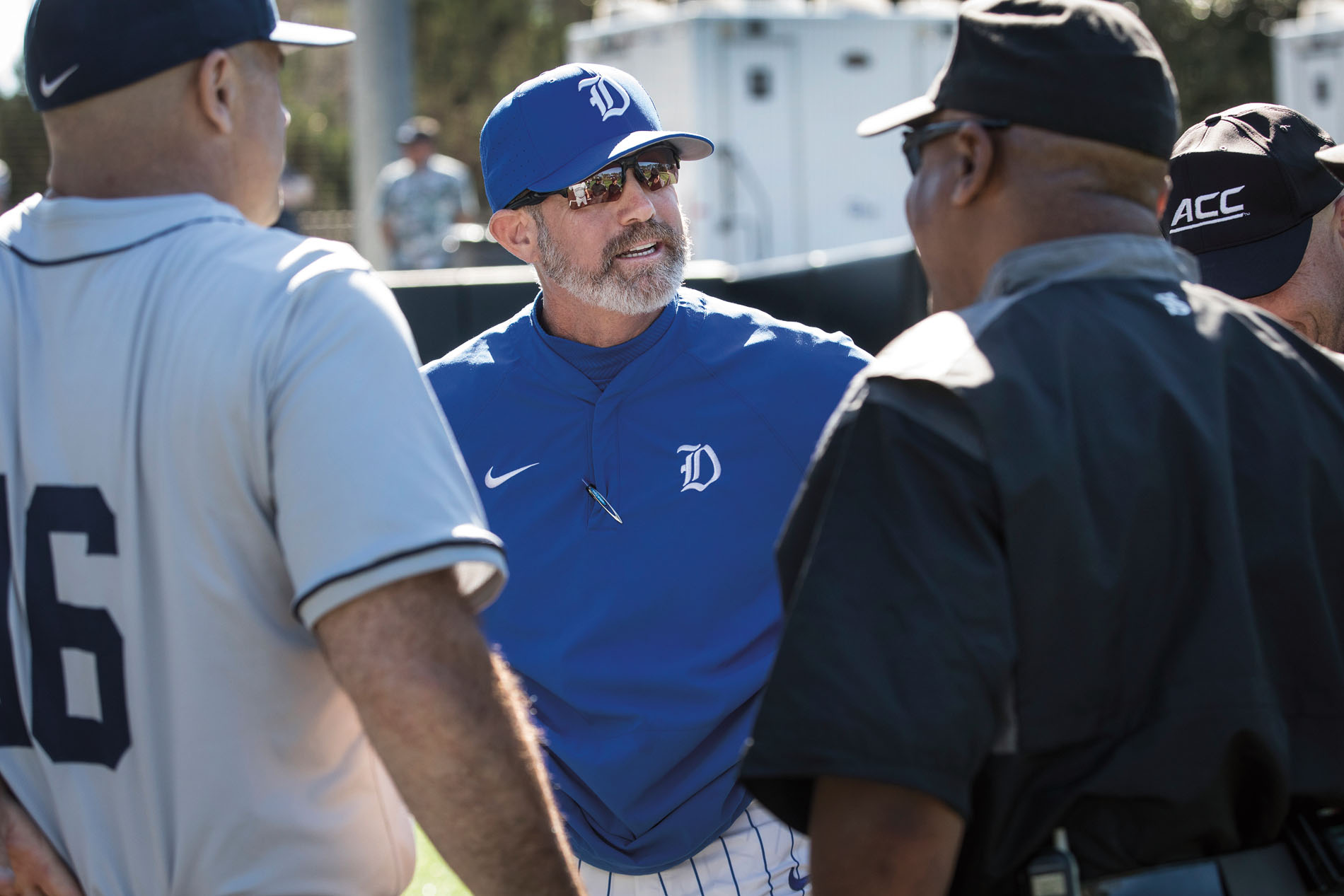
“The kind of guys that we get here want to be great at everything they do. They’re really fun people to be around, and they create the culture in our locker room just because of how driven they are individually.”
Like his baseball mentor and role model, Cooke, Pollard is a family man who makes sure his wife and sons are close to the program. Balancing a demanding and time-intensive job with family responsibilities was something Cooke exemplified and Pollard takes seriously.
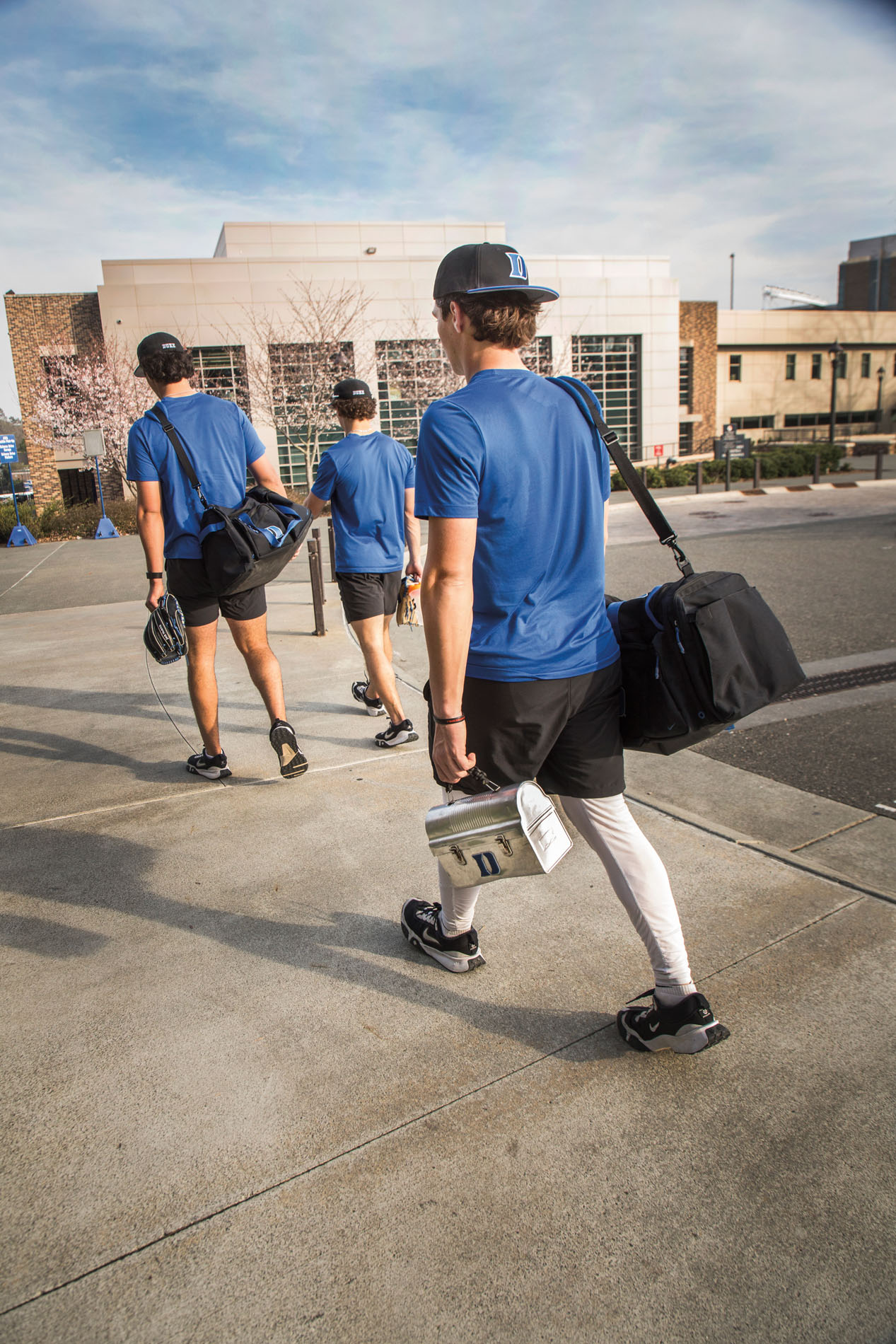
“This is such a great place to raise a family,” Pollard says. “It’s been just fun for my family to be along for the ride. Everybody that really knows our program will tell you that my wife’s got as much skin in the game as anybody. I can remember my youngest being 6, 7 years old and lying in the bed at night and his mom’s putting him to sleep and he’s asking about our chances of making the NCAA Tournament and stressing out about it. They’ve grown up with it and it’s all they’ve ever known.”
Pollard’s extended baseball family, and his legacy, continue to grow. It’s telling that when he invites alumni and people close to the program to come back for a visit, they show up big-time. Each spring before the season, the team holds its First Pitch Banquet, where current players, former players, current parents, former parents, fans, donors and supporters come together.
“We have a meal together and we talk about the previous season, we talk about the upcoming season, and guys come back from all over to be a part of it every year,” Pollard says. “We’ll have 70 to 80 former players in the room together that night, and the family aspect of it is really, really cool to me.”
Perhaps the key to work-life balance is bringing a bit of your family to work, and making the people you work with feel like family. Granddad would be proud.
